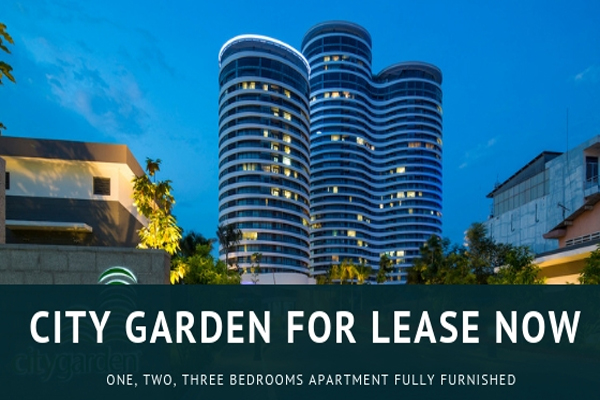Rent an Apartment in Ho Chi Minh City
30 Sep, 2025

If you are planning to live in Vietnam’s most vibrant metropolis, learning how to rent an apartment in Ho Chi Minh City is the first step to building a comfortable life here. Known for its mix of modern skyscrapers, bustling markets, and international communities, HCMC attracts thousands of new residents each year, from local professionals to expatriates.
The rental market is diverse, ranging from affordable studios in Binh Thanh or District 10 to luxury serviced apartments in District 1 and Thao Dien. However, navigating contracts, hidden costs, and neighborhood choices can be challenging for newcomers. This guide provides a clear overview of what you need to know before renting, ensuring that your experience is smooth, safe, and rewarding.
Overview of the Rental Market
When looking to rent an apartment in Ho Chi Minh City, it’s important to understand how the market operates. The city has seen rapid urban development in recent years, with a growing demand for both mid-range and luxury apartments.
Rental prices vary greatly depending on the location and property type. In central areas like District 1 or Thao Dien, luxury apartments often cost between $1,000 and $3,000 per month, while mid-range options in Binh Thanh or District 7 usually range from $500 to $1,200. For more affordable rentals, districts like Tan Binh, District 4, or District 10 offer apartments from $300 to $700 per month.
The market is also influenced by rising demand from expats, professionals, and families who prioritize convenience, international-standard facilities, and access to schools or workplaces. Because of this high demand, attractive apartments tend to be rented out quickly, making it important for tenants to act decisively once they find the right place.

Popular Areas to Rent in Ho Chi Minh City
Ho Chi Minh City offers a wide range of neighborhoods, each with its own lifestyle, rental costs, and conveniences. Here are some of the most popular districts for expats and locals:
- District 1: The central business and entertainment hub, perfect for professionals who want to live close to offices, malls, and nightlife. Rents are higher here, often between $1,200 and $3,000 per month for modern apartments.
- Thao Dien (District 2): Known as the expat village, Thao Dien offers international schools, restaurants, and villas with green surroundings. Rental prices range from $800 to $2,500.
- An Phu & Binh An (District 2): Emerging neighborhoods with many new high-rise apartments, suitable for families and young professionals. Prices are slightly lower than Thao Dien, averaging $600–1,500.
- Binh Thanh District: Located between District 1 and District 2, Binh Thanh is rapidly developing with both luxury projects like Vinhomes Central Park and affordable housing. Prices vary widely from $500 to $2,000.
- District 7: Especially Phu My Hung area, famous for its family-friendly atmosphere, international schools, and modern infrastructure. Apartments range from $600 to $1,800.
- Tan Binh District: Convenient for people who need to be near the airport, offering mid-range apartments from $400 to $900.
- Districts 4, 5, 8, and 10: Affordable areas with good access to the city center, offering rentals from $300 to $700. These districts are popular with young professionals and students.
Average Rental Costs and What Influences Them
When looking to rent an apartment in Ho Chi Minh City, one of the first things to consider is the rental price. Prices in the city vary significantly depending on the location, apartment size, building quality, and amenities. The demand for apartments in central areas like District 1, Thao Dien, and Phu My Hung pushes rental prices higher, with luxury apartments ranging from $1,000 to $3,000 per month. In less central districts such as Tan Binh, District 4, and District 10, the rental prices are more affordable, with apartments typically ranging from $300 to $700.
Several factors influence these prices: the proximity to the city center, public transportation options, and the availability of local amenities such as international schools, supermarkets, and entertainment options. High-quality buildings with premium services like 24/7 security, gyms, and swimming pools also command higher rents. Additionally, new developments in popular neighborhoods tend to have higher rental prices due to their modern facilities and better maintenance.
Before deciding, it’s essential to understand not only the base rental price but also the additional costs, such as management fees, utility bills, and parking fees, as these can add up and affect your monthly budget.
Legal Notes and Lease Contracts
For expats planning to rent an apartment in Ho Chi Minh City, understanding the legal aspects of a lease contract is crucial. While renting is generally straightforward, all agreements should be in writing and ideally available in both English and Vietnamese. This helps avoid misunderstandings and ensures that both the tenant and the landlord are fully protected.
A standard lease contract usually includes details such as the rental price, payment schedule, deposit amount, lease duration, and responsibilities for maintenance or repairs. Most landlords require a deposit equivalent to one or two months’ rent, which will be refunded at the end of the lease if no damages are found. Tenants should also clarify which costs are included in the rent, such as management fees, utilities, or internet services.
Expats are advised to carefully review the contract and, when possible, consult with a local agent or lawyer to ensure compliance with Vietnamese laws. This is particularly important when renting in large developments, where management rules may differ. Having a transparent contract not only safeguards your rights but also provides peace of mind throughout your rental period.
Practical Tips for Renters
Finding the right apartment in Ho Chi Minh City can be exciting, but it also requires careful planning. One of the most practical tips is to visit the property in person before signing any agreement. Photos online may not always reflect the true condition of the apartment, so an in-person visit allows you to check the building quality, surrounding area, and available facilities.
It’s also helpful to compare several apartments in the same district to get a realistic sense of market prices. This prevents overpaying and helps you identify which location offers the best value for your budget. When negotiating rent, don’t hesitate to discuss discounts for long-term contracts, as many landlords are open to reducing the price if you commit for 12 months or more.
Lastly, build a good relationship with your landlord or property manager. Clear communication can help resolve issues faster, such as repairs or contract adjustments. Expats may also benefit from using a reputable agency that provides bilingual support, making the rental process smoother and avoiding legal risks.
Conclusion
Renting an apartment in Ho Chi Minh City offers expats and locals a wide variety of options, from budget-friendly studios to luxury residences in prime locations. Understanding the market, choosing the right district, and carefully reviewing your lease contract are the keys to securing a comfortable and safe home. With preparation and the right guidance, finding a suitable apartment in HCMC can be a smooth and rewarding experience.
If you’re planning to move to areas like Thao Dien, Binh Thanh, District 1, or beyond, take time to explore your options and negotiate wisely. Partnering with a trusted real estate agency can also help you avoid unnecessary risks and find the best value for your needs.

